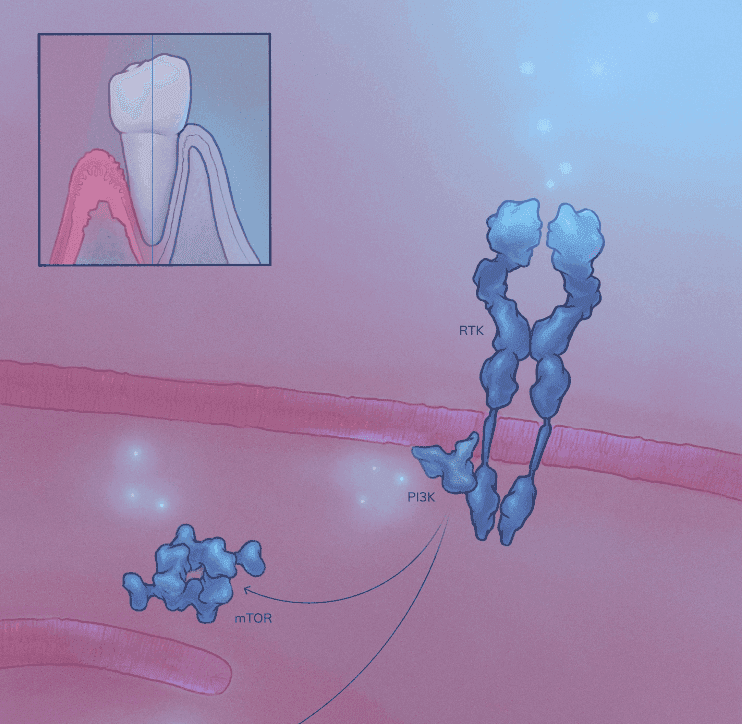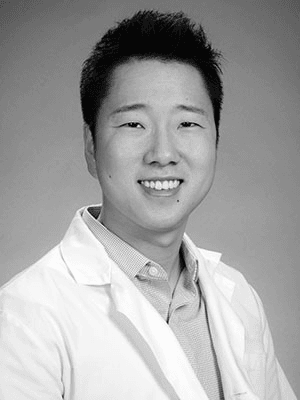
IP-NFT
A VITADAO PROJECT
Reversing Periodontal Disease using Geroscience - An Lab
Funding
$330,000
Initiated
06.04.2022

Jonathan An
Project Lead

Matt Kaeberlein
Collaborator and Advisor

Simon Johnson
Collaborator
AT A GLANCE
Stage: Early stage preclinical discovery
Area: Drug discovery, treating periodontal disease
Status: Ongoing
Patent Status: Not filed yet

Funding
$330,000
Initiated
06.04.2022

Jonathan An
Project Lead

Matt Kaeberlein
Collaborator and Advisor

Simon Johnson
Collaborator
AT A GLANCE
Stage: Early stage preclinical discovery
Area: Drug discovery, treating periodontal disease
Status: Ongoing
Patent Status: Not filed yet
The greatest underlying risk factor for periodontitis is age, and its association with other age-related diseases. Jonathan An’s lab proposes to test a series of compounds targeting inflammation in a mouse model of age-related periodontitis, with the goal of finding a geroscience-based treatment for this neglected disease that has a severe impact on human healthspan.
Background
Efforts to slow the progression of periodontitis in older adults have been attempted through various therapies, including scaling and root planing (“deep cleanings”) or antibacterial adjuncts to reduce pathogens in the pocket, but these treatment modalities are invasive, need to be repeated often, and rely on access to such modalities, which may be limited for many older adults. Furthermore, current therapies are limited to treating the symptoms and fail to address the underlying cellular and molecular causes of periodontal disease, which we hypothesize are a direct consequence of biological aging. A component in most age-related disease and decline is a low-grade, chronic inflammation without overt infection known as “inflammaging”. Among the various organ systems that undergo inflammaging, periodontal disease involves most, if not all, sources and outcomes of inflammaging. Thus, evaluating pathways that target “inflammaging” may provide a unique, Geroscience-based treatment modality to reverse periodontal disease.
Aims, Hypothesis & Results
An Lab proposes to use small molecule inhibitors of the PI3K/NFkB/mTOR pathway to treat periodontal disease. Johnathan An’s Lab envision improvement of the periodontal disease phenotype after 8-week treatment with the candidate compounds maybe a result of (1) an improvement of systemic “inflammaging” to impact periodontal disease that will be tested with the first study (systemic administration), or (2) a direct improvement of periodontal disease, which will be tested with the second study (local administration). Either result could be the base for novel IP regarding formulation and/or delivery methods to improve aging, inflammation, and periodontal disease. Jonathan An’s collaborators also have preliminary data showing that a few of the tested interventions have beneficial effects on neurodegeneration and cognitive decline. Therefore, besides periodontal bone loss, the study will address other systemic markers of healthspan, including inflammation.
The proposal is mainly based on a recent eLife paper (Rapamycin rejuvenates oral health in aging mice | eLife 7) by the research group, where they find positive effects of 8-week treatment with oral rapamycin in age-related periodontal bone loss in mice.
Timeline
An Lab is planning to conduct two pre-clinical studies to test the effectiveness of five selected drug candidates in reversing periodontal disease.
The first study will be an 8-week study using rapamycin as a positive control.
If the first study shows that any of the small molecules is effective in reversing periodontal disease to the same degree as rapamycin when administered systemically, a second sub-study will be carried out to test the effectiveness of their local delivery by brushing the interventions across the gum line, comparing them with locally delivered rapamycin.
The results of these studies will provide critical pre-clinical IP data to support a future company targeting periodontal disease through geroscience.
Pre-Clinical Studies
Required Funding: $330,000
VitaDAO Board Evaluation Writeup
Periodontitis is an unmet need with great impact on healthspan. This project focusing on using a geroscience approach and alleviating inflammaging was evaluated to have strong feasibility to tackle the issue. The proposal was highly rated for a strong scientific team, high novelty and impact, as well as IP-NFT potential. The team has access to dental clinics, which would greatly accelerate the clinical trial process, if the animal studies provide positive data.
Latest Project Updates
30 June
2023
Study completed: identified compounds with positive effects
Study completed and final report delivered: some compounds had positive effects on cellular senescence. The lab will carry out complementary analysis to dive deeper into the project results.
6 April
2022
Project Initiated